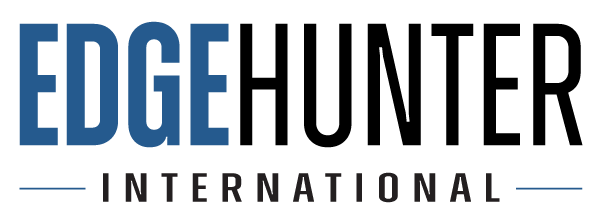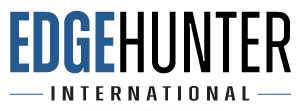In today’s hyper-competitive market, growth doesn’t just happen — it’s engineered. And one of the biggest levers you can pull to accelerate that engineering? marketing recruiters. If you’re building or scaling a growth team, relying solely on in-house hiring or generalist recruiters can leave you behind. In 2025, the organizations that win double down on strategic recruiting by marketing niche experts.
In 2025, every business wants to grow fast — but the companies that actually scale sustainably all have one thing in common: they know how to build powerful marketing teams.
And the truth is, building that kind of team isn’t luck — it’s strategy. That’s where marketing recruiters come in.
They’re not just filling roles — they’re aligning talent with your growth vision. In an era where marketing demands a perfect mix of creativity, data literacy, and speed, marketing recruiters are the growth accelerators behind today’s most successful brands.
So if you’re asking yourself,
“Do I really need a marketing recruiter?”,
the answer in 2025 is: Absolutely — if you want to scale.
Article Highlights — Quick Overview
| Section | Why It Matters | Key Takeaways |
|---|---|---|
| What marketing recruiters do | They blend recruiting rigor with domain expertise to find marketers who actually move the needle. | – Speak the language of growth and analytics – Shortlist based on outcomes, not buzzwords |
| Why they’re essential in 2025 | The marketing talent gap is real; specialized recruiters reduce vacancy drag and hiring errors. | – Faster time-to-hire – Better retention and performance |
| Strategic advisory vs. résumé forwarding | Great recruiters help design job scopes, compensation, and team structures aligned with business growth. | – Advisory on organization design – Salary and role benchmarking |
| How they operate differently | Niche sourcing, candidate storytelling, and market feedback create a higher-quality pipeline. | – Community-driven sourcing – Data-backed screening |
| Client story (Edge Hunter) | Real-world example of how Edge Hunter helped a SaaS company scale its growth team in 90 days. | – 3 key hires completed – +36% campaign engagement |
| Data & trends (2025) | AI, hybrid work, and skill-based hiring redefine marketing recruitment strategy. | – Cost per hire up 17% – Hybrid and creative analytics profiles in demand |
| AI’s role in recruiting | AI improves sourcing and screening, while human recruiters ensure narrative and culture fit. | – Predictive matching – Human intuition for creative alignment |
| Integration playbook | Maximize results by treating marketing recruiters as strategic partners, not vendors. | – Weekly syncs – Shared performance goals |
| Common mistakes to avoid | Generic job descriptions, low compensation, and poor employer branding slow down hiring. | – Hire for impact, not tenure – Invest in market insights |
| KPIs to track | Track recruiting efficiency, quality, and retention to measure ROI. | – Time-to-hire and offer ratio – Retention and quality of hire |
What Does a “Marketing Recruiter” Actually Do?
Before we dive in, let’s define the term so we’re on the same page.
A marketing recruiter is a recruiter with deep specialization in marketing (growth, performance, content, brand, digital, analytics, etc.). Their role is more than just filling positions — they:
Understand current marketing trends, channels, and skills
- Speak the “language” of marketers
- Maintain a portfolio of active and passive marketing talent
- Advise on compensation, role design, and team structure
- Shortlist only candidates who not only match skill criteria but have marketing instincts
- Provide hiring managers with insights into the talent market
Unlike general recruiters, they live and breathe marketing. They know the difference between demand generation and performance marketing, between CAC and LTV, and between a “good hire” and a “growth multiplier.”
They often maintain deep networks across:
-
SaaS and tech marketing professionals
-
Creative and content communities
-
Growth and analytics leaders
-
Brand and communications specialists
That insider knowledge lets them spot true talent and match it to company vision faster than anyone else.
If you’re hiring for multiple roles — say a marketing team for hire — marketing recruiters can help you design structure, compensation, and reporting lines that actually drive outcomes instead of silos.
So, when we talk about hiring a marketing recruiter (or partnering with one), we’re investing in someone who brings both recruiting rigor and sector insight.
Why Marketing Recruiters Are More Valuable Than Ever in 2025-2026
1. The Talent Market Is More Competitive Than Ever
In 2025, hiring is no longer about setting a job ad and waiting — it’s a war for talent. According to GoGloby, 74% of marketing organizations report a critical talent shortage.
According to LinkedIn’s Future of Work Report 2025, marketing is among the top 5 industries facing a critical talent shortage. Skills like AI content optimization, data-driven targeting, and growth experimentation are scarce — and expensive to find.
Marketing recruiters solve that by:
-
Accessing passive candidates not visible on job boards
-
Speaking the language of marketers to build trust faster
-
Knowing which job titles attract the right profiles
-
Benchmarking salaries and market trends in real time
Recruitment isn’t just filling a job anymore — it’s competing for the best minds in an ecosystem that’s moving faster than ever.
2. They Slash Time-to-Hire (and the Cost of Getting It Wrong)
One of the biggest hidden costs in scaling is vacancy drag — revenue lost because a key role is unfilled. Marketing recruiters streamline the funnel by:
- Pre-validating technical skills and soft fit
- Accelerating screening and vetting
- Avoiding common mismatches
Every unfilled marketing role means lost opportunity. Campaigns delayed, launches postponed, and analytics underused.
That’s what we call vacancy drag — the invisible tax on business growth.
Specialized recruiters drastically shorten the hiring cycle by running pre-qualified pipelines.
They use automated sourcing tools, data analytics, and pre-built candidate networks.
➡️ According to Deloitte, companies using AI-assisted recruiting reduce time-to-hire by up to 35%.
And it’s not just speed — it’s accuracy. Because they’re trained to detect subtle marketing mismatches, marketing recruiters reduce hiring errors that can cost 6–12 months of lost progress.
3. They Offer Strategic Advisory — Not Just Resumes
The best marketing recruiters act like consultants. They’ll challenge you to rethink your structure, your job descriptions, and even your growth strategy.
They’ll help you answer questions like:
-
Should my growth and brand teams be integrated or separate?
-
Is it time to bring performance marketing in-house?
-
What’s a competitive salary for a B2B content strategist in Austin?
At Edge Hunter, one of our clients in the fintech sector discovered through our audit that they were underpaying for senior digital strategy roles by 18%. After rebalancing their compensation strategy and using our marketing recruiters, they filled 3 critical positions in under 5 weeks — and their campaign ROI jumped 22% within a quarter.
That’s the power of market intelligence combined with recruiting experience.
4. Better Hires. Longer Retention. Stronger Culture.
Marketing recruiters deepen the alignment between candidate and mission. Because they know the domain and can speak directly to a marketing candidate’s ambitions, they:
- Represent employer branding more credibly
- Spot red flags in candidates (e.g. lack of data discipline, rigid silo mentality)
- Vet for adaptability (vital in growth teams)
Marketing recruiters don’t just evaluate skills — they evaluate mindset.
They know how to spot candidates who can thrive in fast, data-driven, creative environments.
They assess for adaptability, growth mindset, and collaboration — traits that predict success in high-growth teams.
And when a hire aligns with culture, performance, and purpose, retention follows.
As SHRM notes, candidates who feel connected to a company’s mission are 42% more likely to stay beyond 2 years.
That’s the hidden ROI marketing recruiters bring — fit that lasts.
5. Scalability & Predictability
As your growth engine scales, you want recruiting to feel like a growth channel itself (predictable, scalable). Marketing recruiters help build pipelines, nurture passive talent pools, and forecast hiring velocity.
Growth doesn’t wait for your HR department to catch up.
Whether you’re expanding your marketing team by 2 or 20, marketing recruiters give you predictability — the ability to scale hiring on-demand.
They maintain pre-qualified talent pools so that when your CEO says,
“We need a new content marketing squad in 45 days,”
you’re not starting from zero.
That’s how brands build momentum — not through luck, but through a repeatable hiring engine powered by specialized recruiting.
How Marketing Recruiters Operate (vs. General Recruiters)
To really appreciate their value, here’s a breakdown of what marketing recruiters do differently:
| Process Step | Marketing Recruiter Approach | Generic Recruiter Approach |
|---|---|---|
| Sourcing | Uses creative networks, Slack groups, and niche job boards for marketers | Posts ads and waits |
| Screening | Tests for funnel metrics, creative process, analytics literacy | Checks resume keywords |
| Candidate Storytelling | Frames your mission to marketers | Sends job description only |
| Interview Prep | Guides hiring managers on marketing skill assessment | Limited or none |
| Market Feedback | Provides salary trends and role evolution insights | Transactional feedback |
| Follow-up | Stays in touch for long-term placements | One-and-done placement |
Because of that domain leadership, marketing recruiters bring credibility and velocity that generalist recruiters struggle to match.
That nuance means fewer bad hires — and a better reputation in the marketing community.
Client Story: How Edge Hunter Helped Scale a Growth Team in 90 Days
Last year, a SaaS company (we’ll call them BrightStack) partnered with Edge Hunter because their internal recruiters couldn’t keep up with the demand for specialized marketing roles.
They needed to fill:
-
A Marketing Ops Lead
The challenge? Speed and quality.
Edge Hunter’s marketing recruiters designed a rapid pipeline strategy. Within three weeks, they had sourced and pre-screened 40 candidates. The first hire, a senior Content Marketing Specialist – Digital Design & Video, improved engagement by 36% in her first campaign.
BrightStack’s CMO said it best:
“It wasn’t just that Edge Hunter found candidates fast.
They found the right ones — people who understood the metrics behind storytelling.”
That’s what happens when marketing recruiters bridge creativity and analytics.
Data Insights: What’s Changing in 2025
According to Appcast’s 2025 Recruitment Marketing Benchmark Report:
-
Cost per marketing hire rose 17% year-over-year
-
Application rates dropped by 12% for creative and digital roles
-
63% of marketing professionals say they value remote flexibility above salary
Meanwhile, AI-driven sourcing is up 46% across leading recruiting firms.
Marketing recruiters understand how to adapt — balancing automation with human touch, speed with personalization, and analytics with storytelling.
The Role of AI and Data in Marketing Recruitment
Artificial intelligence isn’t replacing recruiters — it’s amplifying them.
Modern marketing recruiters use AI to:
-
Identify passive candidates via skill-matching algorithms
-
Predict offer acceptance likelihood
-
Analyze career trajectory data to forecast turnover risk
But here’s the catch: AI can’t replace human intuition.
It can’t tell you whether a candidate truly aligns with your creative process or values.
That’s why the hybrid model — humans + AI — defines recruiting excellence in 2025.
If you’re curious about how AI is reshaping recruitment across sectors, check out our related post:
👉 Top Questions to Ask Your IT Recruiting Agency Before Hiring
Integrating Marketing Recruiters Into Your Growth Framework
Here’s how to make the relationship work:
-
Share your growth roadmap.
Let recruiters understand the “why” behind your roles. -
Collaborate on job design.
Marketing recruiters can rewrite JDs to attract the right level of talent. -
Use performance data.
Share historical performance metrics; recruiters will mirror them in candidate profiles. -
Treat them as partners.
Not order takers. Their market insights should influence strategy. -
Keep the loop tight.
Weekly updates = faster pivots and better hires.
Growth teams that treat recruiting as a marketing channel always win. Because hiring is marketing — your first campaign to your future team.
Common Mistakes Companies Make Without Marketing Recruiters
-
Writing outdated or overly broad job descriptions
-
Focusing too much on years of experience, not impact metrics
-
Ignoring soft skills like adaptability or creative collaboration
-
Offering below-market compensation due to poor benchmarking
-
Neglecting employer brand in job postings
Each of these mistakes compounds hiring friction — and costs growth opportunities.
For perspective, compare the marketing hiring landscape with the broader workforce by reading:
👉 Top 10 In-Demand Jobs in the U.S. for 2025
Metrics That Matter in Marketing Recruitment
To evaluate your partnership, track metrics that reflect both efficiency and quality:
-
Time-to-hire: How fast key roles close
-
Quality of hire: Performance after 6–12 months
-
Interview-to-offer ratio: Measure match accuracy
-
Retention rate: Indicator of culture alignment
-
Candidate satisfaction: Your employer brand health
Marketing recruiters should provide dashboards for these KPIs — not just resumes.
Looking Ahead: The 2025 Marketing Hiring Outlook
The marketing landscape is evolving rapidly.
AI is taking over repetitive tasks, analytics are dictating creative direction, and omnichannel campaigns are the norm.
That means the next generation of marketers need hybrid skills: creativity, analytics, and strategic thinking.
Companies that want to stay ahead must recruit differently — faster, smarter, and more intentionally.
That’s exactly what marketing recruiters do.
To understand how other industries are adapting, see our companion analysis:
👉 IT Hiring Trends 2025: Skills, Challenges & Career Opportunities
Final Thoughts
Marketing recruiters aren’t a “nice-to-have” anymore — they’re your growth partners.
They bring precision to chaos, speed to opportunity, and insight to every hiring decision.
They connect creative talent to ambitious companies ready to scale.
So whether you’re building your first growth team or expanding globally, partnering with marketing recruiters is how you turn vision into measurable traction.
If you’re ready to take that step, explore how Edge Hunter’s marketing team for hire can help build your next chapter of growth.
👉 Explore Marketing Team for Hire
Edge Hunter plugged in their marketing recruiter division and led the search for:
-
Performance Marketing Lead
-
SEO / Content Lead
NovaScale’s CEO later told the hiring team, “We would’ve missed these candidates if we’d done this via generic recruiters.”
That experience shows what’s possible when you lean into specialized recruiting.
FAQS
1. What is a marketing recruiter?
A marketing recruiter specializes in sourcing and placing marketing professionals across digital, creative, analytics, and growth roles. They combine recruiting expertise with marketing knowledge to identify high-performing talent.
2. Why do I need a marketing recruiter in 2025?
Because the marketing talent landscape is hypercompetitive. AI, data, and hybrid work have created demand for unique skills — and marketing recruiters know how to find and evaluate them quickly.
3. Can they help with remote hiring?
Absolutely. Marketing recruiters are experienced with global and hybrid roles, managing everything from compliance to time-zone collaboration.
4. How do they assess candidates?
They evaluate hard skills (analytics, funnel optimization, copywriting) and soft traits (adaptability, collaboration). Many also use case exercises or growth scenario assessments.
5. What’s the cost of working with a marketing recruiter?
Most charge between 15–25% of the candidate’s first-year salary, or a flat retainer for ongoing recruiting support.
6. Do they only work with large companies?
No. Many of Edge Hunter’s clients are startups and mid-sized businesses scaling fast. Marketing recruiters adapt to your team size and growth pace.
7. How long does hiring through a marketing recruiter take?
Depending on the role, 4–8 weeks on average. Senior roles may take longer if the skill set is rare.
8. What’s the biggest advantage of using a marketing recruiter?
Speed and quality — you’ll fill critical roles faster with candidates who can drive measurable growth.
9. How do I know if a marketing recruiter is good?
Look for recruiters who speak marketing fluently, provide insights (not just resumes), and have testimonials or case studies from growth teams.
10. Can marketing recruiters help with employer branding?
Yes. Because they understand marketers, they know how to position your company as an attractive brand for top talent.



